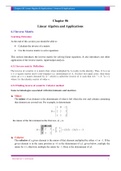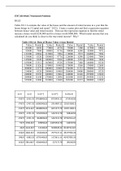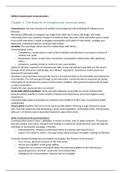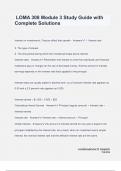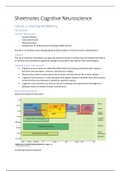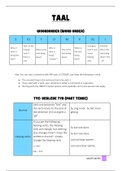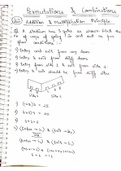Contrastive language studies
English verb tense
Reflects our perception of time in language (you indicate whether you are referring to the
past, present or future)
Is expressed by the main verb of by a main verb in combination with an auxiliary or
auxiliaries
The time of an action (when the event that is being referred to actually took place) is
related to the moment of utterance (= the moment of speaking)
Tense is not the same as time the correlation is not complete (e.g., using the
present tense [dramatic present] to refer to past time)
Present simple
Facts permanent situations
Regularity repeated actions, habits, things that happen all the time
Instructions, commentaries, demonstrations
Stories the dramatic present
Base form, -s form ( the SHIT rule)
I walk
Adverbials (signal words) always, often, sometimes, hardly, never, every X
I walk to the supermarket every afternoon
Present continuous
Continuity continuing actions and events (duration)
Repetition or long-lasting changes
Actions going on right now/at this moment
Be + -ing (present participle)
I am walking
Adverbials (signal words) right now, at this moment, now etc.
What are you doing? I am walking to the train station
watch out: stative verbs do not take the -ing form (I am liking…)
Stative verbs
, = verbs that refer to states (mental processes, sense perception, etc.) and that cannot be
used in the continuous tense (with progressive aspect)
= often involuntary (feelings, thoughts) believe, doubt, feel, love, seem, sound
watch out sometimes the same verb can be stative of dynamic (=real actions)
This coffee tastes delicious. (state – our perception of coffee, no continuous)
Look! The chef is tasting the soup. (action – tasting the soup is an activity OK to
use in the continuous)
Present perfect |
Occurrences that started in the past, but the result is tangible in the present or
connected to it
I have washed the car. ( The car is clean now.)
I have graduated from secondary school. ( I have my diploma now.)
Emphasizing completion
I’ve finished!
News of recent events
Max Verstappen has won the last race.
Up to now
I haven’t seen John this week.
Have + past participle
I have walked
Thinking about the present and the past together (!) do NOT use it when
expressing finished actions in the past (no link to the present)
I have walked a lot yesterday.
Adverbials (signal words) for, yet, never, ever, before, just, already, since
I have never walked alone
Present perfect ||
Progressive/continuous
Continuing actions and situations
I’ve been studying really hard this semester.
Repeated actions
I’ve been running back and forth the whole day.
Actions and situations that have just stopped
Short, temporary actions
Emphasized duration
‘Simple’ (the regular present perfect)
When using stative (non-progressive)
Stating how much we have done
Stating how often we’ve done something
Past simple
Past events short, quickly finished actions
English verb tense
Reflects our perception of time in language (you indicate whether you are referring to the
past, present or future)
Is expressed by the main verb of by a main verb in combination with an auxiliary or
auxiliaries
The time of an action (when the event that is being referred to actually took place) is
related to the moment of utterance (= the moment of speaking)
Tense is not the same as time the correlation is not complete (e.g., using the
present tense [dramatic present] to refer to past time)
Present simple
Facts permanent situations
Regularity repeated actions, habits, things that happen all the time
Instructions, commentaries, demonstrations
Stories the dramatic present
Base form, -s form ( the SHIT rule)
I walk
Adverbials (signal words) always, often, sometimes, hardly, never, every X
I walk to the supermarket every afternoon
Present continuous
Continuity continuing actions and events (duration)
Repetition or long-lasting changes
Actions going on right now/at this moment
Be + -ing (present participle)
I am walking
Adverbials (signal words) right now, at this moment, now etc.
What are you doing? I am walking to the train station
watch out: stative verbs do not take the -ing form (I am liking…)
Stative verbs
, = verbs that refer to states (mental processes, sense perception, etc.) and that cannot be
used in the continuous tense (with progressive aspect)
= often involuntary (feelings, thoughts) believe, doubt, feel, love, seem, sound
watch out sometimes the same verb can be stative of dynamic (=real actions)
This coffee tastes delicious. (state – our perception of coffee, no continuous)
Look! The chef is tasting the soup. (action – tasting the soup is an activity OK to
use in the continuous)
Present perfect |
Occurrences that started in the past, but the result is tangible in the present or
connected to it
I have washed the car. ( The car is clean now.)
I have graduated from secondary school. ( I have my diploma now.)
Emphasizing completion
I’ve finished!
News of recent events
Max Verstappen has won the last race.
Up to now
I haven’t seen John this week.
Have + past participle
I have walked
Thinking about the present and the past together (!) do NOT use it when
expressing finished actions in the past (no link to the present)
I have walked a lot yesterday.
Adverbials (signal words) for, yet, never, ever, before, just, already, since
I have never walked alone
Present perfect ||
Progressive/continuous
Continuing actions and situations
I’ve been studying really hard this semester.
Repeated actions
I’ve been running back and forth the whole day.
Actions and situations that have just stopped
Short, temporary actions
Emphasized duration
‘Simple’ (the regular present perfect)
When using stative (non-progressive)
Stating how much we have done
Stating how often we’ve done something
Past simple
Past events short, quickly finished actions


